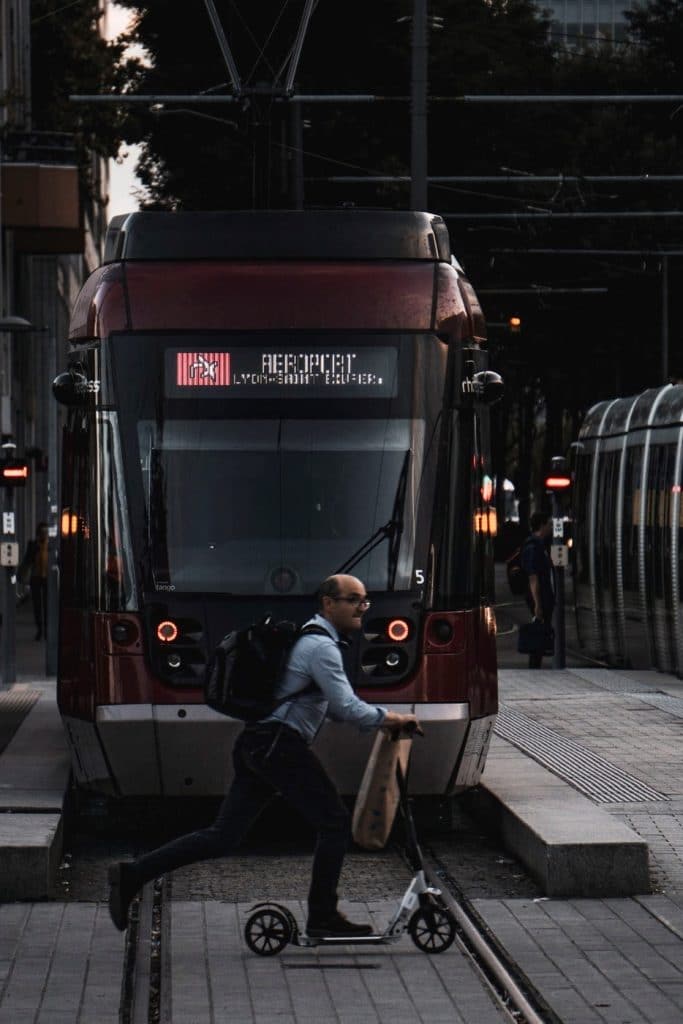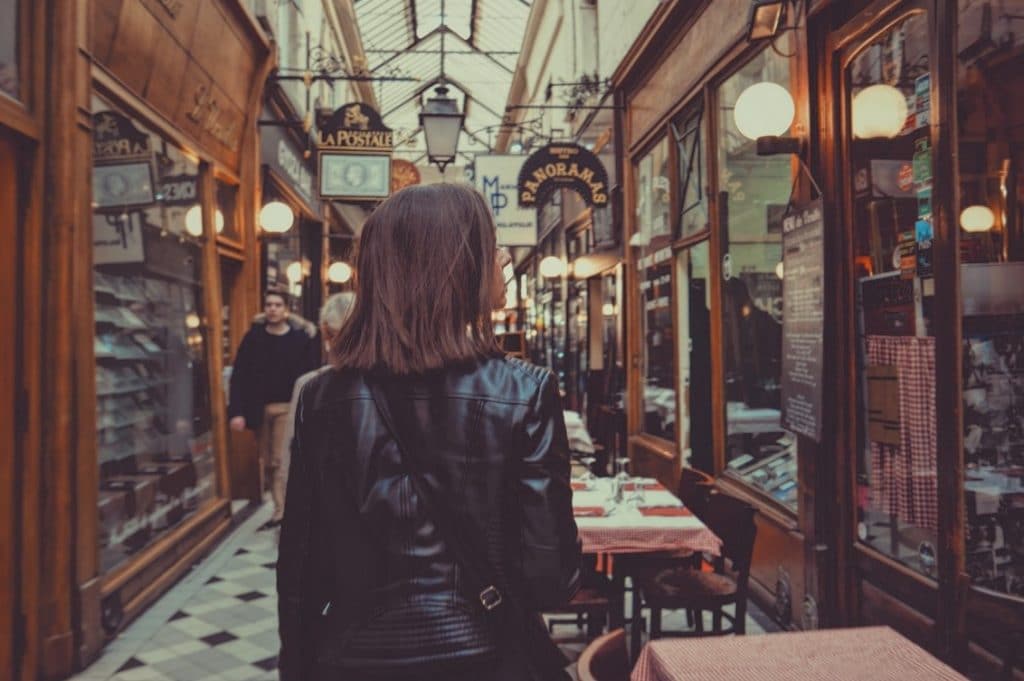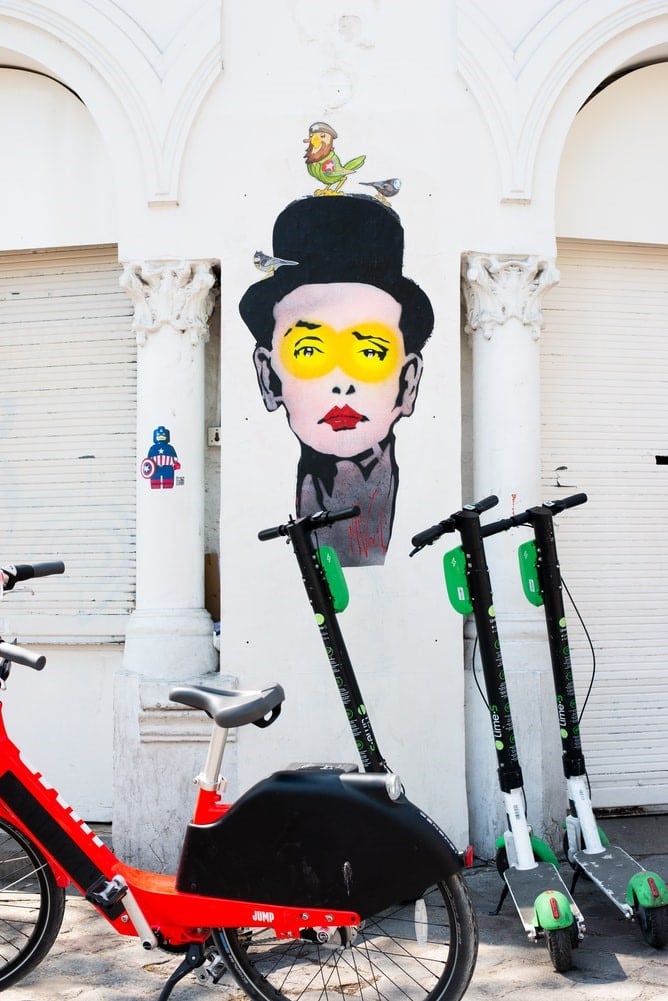There is plenty of reasons to choose a centrally located hotel for your trip. We have selected the main reasons for you. Read more about it in this article.
When you think about a great city-break in France, do you think about a stay that is convenient, fun and welcoming? I do, but I also think about having the lightest carbon footprint as possible… The reason for this is of course based on the sustainability of the hotel!
The main reasons for choosing a downtown hotel are:
• Hotel location vis-à-vis main public transport hubs
• Hotel location vis-à-vis main tourist sites and proximity to restaurants
• Modern urban transport share system work well for travelers
• The lower carbon footprint of a downtown hotel
One school of thought might think that train stations are run-down beat areas to avoid at all costs. When it comes to France, this is not at all the case. The stations mostly date back to the 19th century and have since been listed as historic monuments by the French State. They are (often) astoundingly beautiful and are the sorts of places you want to explore and wander around. Why is this important when it comes to hotel selection? Because we highly recommend that (with roller luggage) you arrive and explore by foot if your hotel is in the vicinity. By vicinity I mean perhaps less than 800 meters or so (1/2 mile). Train station commercial areas are full of old shops and buildings that are charming, and, (because the train system is quite well supported in France) the shops are all open. So, if you can, imagine arriving at the Gare de Lyon in Paris, perhaps it’s two PM, and you want a caffeine hit. Well exit towards the main exit, and find the Bistro de la Gare. It’s opposite and take a terrace seat. The view back towards the station is splendid and the come-and-go of travelers is entertainment itself. 2€ well spent.
Following that, there is a short walk of 1km to a superb hotel. Hôtel Original Marais, to choose just one of many top places in the vicinity. So all of this walking about, is exactly what you will probably do later in your city-break, AND it avoids a driver waiting and using precious fossil fuels. Don’t get me wrong, anything longer than this and we want to take care of you, and your heavy bags. The thing is we don’t want to propose a private vehicle when it is not strictly necessary for everybody.

Secondly, once you are at your hotel, a hotel placed in the center of the city will see you spending far less time using a private vehicle (taxi, or needing a rental car). This of course has benefits to the environment. The best restaurants and bars in any old European city are in the center, crowding around the old squares. These are also easily accessible by foot and walking speed always allows you the time to make a good choice!

Some French cities have Metro systems and all have subsidized public transport. They are efficient, ecological, easy to understand and at any rate our Trip My France roadbooks have explanations of how to use each system if you so desire. Asides from Metro, Bus, and Tram the bike share systems have revolutionized transport in France and should be used by travelers. Lyon (my adopted home town) was the first big city in France to run a bike share system and it has been a complete success. They have English language instructions and the deposit works with any credit card. The next generation of traveler friendly transport systems are many and varied. Lime scooters (and the like) are one of these and can be an easy (App based) solution if you have the experience and accept the risk. These might be a trend for people who are not comfortable with traditional public transport solutions (post-COVID 2020). Again, they are not for everybody, but they do help make an exciting and environmentally-concious visit in a new place.

A last final element, regarding hotel choice is the environmental choice. What needs to be weighed is the difference in environmental impact for the transport to and from a hotel on the periphery of any city, versus an established hotel in the center. A hotel in the downtown area wins hands down (all other criteria being equal) and has been shown in a recent research paper. Greek researchers near Athens have determined that a Low Tourist Carbon Footprint is associated with proximity to sites of tourist interest and the further away a hotel is from the city center the higher the tourist carbon footprint (see Pieri et al. for the full journal article). The simple need to call drivers every morning, and evening, and then perhaps again during the soiree (to dine at a centrally located restaurant) means that the impact is clear. Most hotels in the periphery are not well linked by public transport either.
We could of course advise you “10 tips to help reduce your impact whilst staying in a hotel” but that could be a tad patronizing. We strongly advocate staying downtown (with the old walls of these beautiful European cities) instead of out in the suburban outskirts. Along with the convenience factor, the ability to walk places is more environmentally-friendly.
Of course hotel management could reduce the carbon footprint of their hotel through a series of measures that encourage customers to use public transport, bicycles or move on foot during their stay, where it makes common sense. We know this does not work for everyone.
At Trip My France we do our best through the detailed roadbooks that we put together, to highlight this essential transport information. Please contact us by email for special offers, adapted Covid-19 cancellation terms and detailed recommendations.








